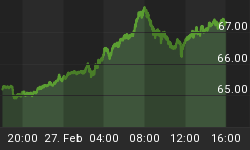The ability to sit, relax and take a sizable paid vacation rate higher that wages, according to a new study of the American workforce, which would forego tens of thousands of dollars a year for quality-of-life perks.
Wages might be increasingly only modestly—even in a strong growth economy—but businesses are using perks that include everything from bonuses, flexible schedules, working from home and paid vacations to recruit and retain workers.
According to Time magazine, AirBnB even offers free vacations (makes sense), while Reebok offers Crossfit classes, and Genentech offers an onsite spa and car wash, and Spotify will free your eggs for free (hoping you won’t get pregnant until later and can stay focused on your career.
Now, new research by the RAND Corporation shows that Americans are willing to give up quite a lot of money in return for non-wage benefits. And the three benefits that pop up most are self-scheduling, paid vacation and moderate physical activity.
In its “American Working Conditions Survey”, RAND noted that “40 percent of respondents preferred a lower-wage job with a flexible work schedule and telecommuting over a higher-wage job without those attributes."
Any growing numbers of American workers have grown rather tired of the ‘team work’ mantra.
Another 20 percent of respondents "preferred a higher-wage job with a relaxed environment and no team-based work over a higher-wage job without those attributes."
‘Non-wage’ strategies for recruiting and retaining employees have gained significant ground over the past few years, led largely by the tech industry, according to Salary.com. Related: San Francisco’s $8 Billion Nuclear Housing Project
This month’s issue of the Federal Reserve’s ‘Beige Book’ confirmed the trend, noting that the tight labor markets and difficulties finding qualified workers have led some businesses to implement “non-wage strategies to recruit and retain workers, such as giving signing bonuses, offering flexible work schedules and increasing vacation allowances”.
According to a Glassdoor survey from last year, more than half of all workers said perks and benefits were important factor when considering whether to accept a job, and almost 80 percent of employees said they would prefer new benefits over a pay raise.
This isn’t just about health insurance anymore, and the tight labor market is to thank. It’s also not just about the meagre vacation days American workers get in comparison to their European colleagues. They want much more, and they want it to be about quality of life. Nor are gyms on site or yoga enough in this market. Some employers have tried to sweeten the deal with everything from nap time to paid time off to hang with your pet, free food, paternity leave, and free housing.
By Bloomberg’s calculations, based on a working paper from the National Bureau of Economic Research, if you take the best mix of available perks and put them all into a single job, a worker would be giving up a 56-percent wage increase to have them.
By Michael Scott for Safehaven.com
More Top Reads From Safehaven.com:
















